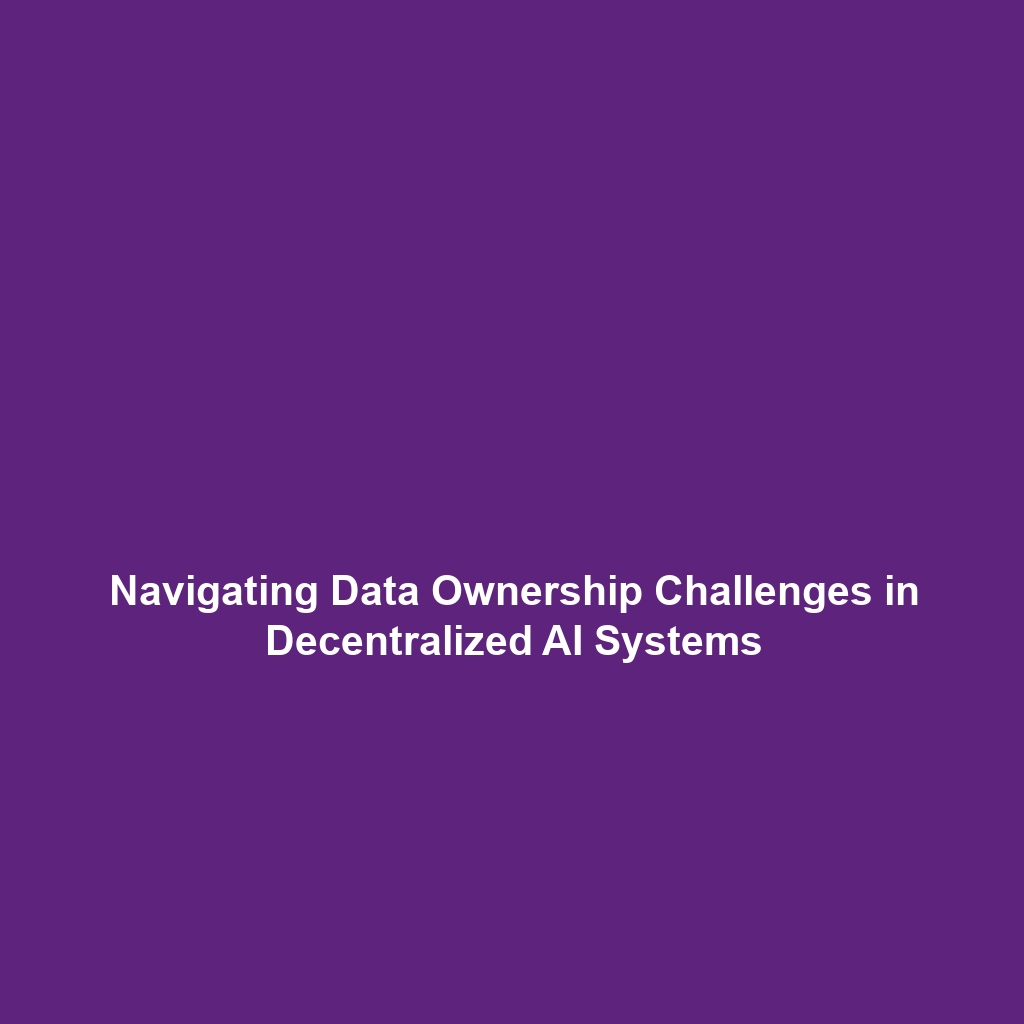Fairness in Decision-Making: Ensuring AI Makes Equitable Decisions
Introduction
In the emerging field of AI Ethics, ensuring fairness in decision-making processes is paramount for achieving equitable outcomes. The integration of artificial intelligence (AI) in significant areas, such as hiring, criminal justice, and finance, underscores the necessity of equitable decision-making frameworks. Fairness in Decision-Making not only aligns with ethical principles but also influences public trust and societal well-being. As AI systems become more prevalent, the challenge lies in designing algorithms that do not inadvertently perpetuate biases, thereby maintaining the integrity and ethical considerations inherent in AI Ethics.
Key Concepts
Understanding Fairness
Fairness in AI often encompasses principles such as:
- Equality: Ensuring all individuals have equal opportunities.
- Equity: Acknowledging and addressing historical disadvantages.
- Bias Mitigation: Identifying and reducing biases inherent in datasets and algorithms.
These concepts are integral to advancing AI Ethics by guiding the development of transparent and responsible AI systems.
Applications and Real-World Uses
The implementation of fairness in decision-making plays a crucial role in various sectors. Here are notable applications:
- Hiring Algorithms: Organizations use AI to filter resumes or assess candidates while striving for inclusivity.
- Health Care: AI systems generate recommendations for treatment plans, ensuring equal access to healthcare resources.
- Judicial Systems: Risk assessment tools utilize AI for pre-trial decisions, emphasizing impartiality.
These examples illustrate how Fairness in Decision-Making is applied within the broader context of AI Ethics.
Current Challenges
Numerous challenges remain in the pursuit of fairness in AI. Some key issues include:
- Data Bias: Inadequate or skewed data can lead to biased outputs.
- Lack of Transparency: Many AI systems operate as ‘black boxes,’ making it hard to assess fairness.
- Regulatory Frameworks: Insufficient regulations remain a barrier to equitable AI use.
Understanding these challenges of fairness highlights the need for ongoing scrutiny in the field of AI Ethics.
Future Research and Innovations
The future of Fairness in Decision-Making holds exciting possibilities, with several areas for further research, including:
- Explainable AI (XAI): Enhancements to transparency in AI algorithms.
- Adaptive Fairness: Real-time adjustments in AI systems to maintain fairness across diverse contexts.
- Interdisciplinary Approaches: Collaboration between ethicists, technologists, and policymakers to create holistic solutions.
These advancements could shape the trajectory of AI Ethics, ensuring that AI systems uphold equitable principles.
Conclusion
In summary, Fairness in Decision-Making is a critical consideration that underpins the ethical deployment of AI technologies. Addressing the challenges while exploring innovative research will be pivotal for creating equitable AI systems that foster public trust. As the dialogue surrounding AI Ethics continues, stakeholders from various domains must engage collaboratively. For further reading on this topic, consider exploring our detailed analysis on AI Bias Mitigation Techniques and Ethical Frameworks for AI Implementation.


